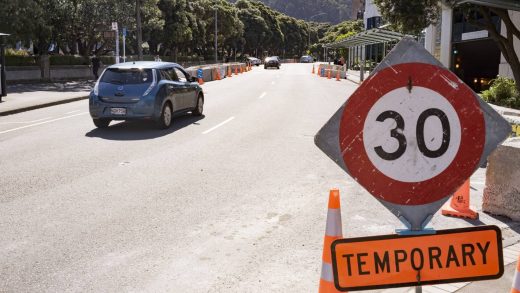
Lee Kenny/Stuff
More than 1000 NZEI Te Riu Roa union members meet in Christchurch on Thursday.
Teachers have ‘overwhelmingly” rejected their latest pay offer and will now vote on industrial action, with a possible strike in two weeks.
Around 30,000 principals and teachers from schools and kindergartens across the country will begin a ballot for industrial action on Saturday after rejecting offers from the Ministry of Education to settle their collective employment agreements.
Tens of thousands of teachers met at union talks across the country this week. Around 1500 attended a packed meeting at Christchurch’s Town Hall on Thursday organised by NZEI Te Riu Roa, New Zealand’s largest education union.
Area school teachers also attended the meetings and will take part in a ballot for strike action.
READ MORE:
* 1500 Christchurch teachers attend packed meeting to discuss latest pay offer
* Tens of thousands of teachers will vote on latest pay offer this week
* Education minister’s stern warning to early learning centres
“The Ministry of Education (MoE) has not provided a second offer after area school teachers rejected an initial offer in November last year,” an NZEI spokesperson said.
Primary and area school principals rejected their second offers in February and will also participate in the ballot. If members choose to strike, there will be a full, one-day strike on Thursday March 16.
“The depth of feeling among members was incredibly strong across all parts of the sector,” said NZEI president Mark Potter, who attended several meetings this week.
Joseph Johnson/Stuff
New Zealand’s largest education strike involving primary and secondary school teachers was held in 2019 (file image).
“The offer did little to address the concerns we have as a sector, and did not go far enough in ensuring that teaching is a valued and attractive profession.”
The rising cost of living remained an issue for many in New Zealand, not just for educators, Potter said. But the pay offer was just part of why educators are rejecting the proposals from the MoE.
Members would continue to press the government on the issues beyond the settlement of their agreements.
“This rejection of the offers and the move to a strike ballot is just the first step,” he added. “I’m sure our members will be making their voices and opinions heard from now until the General Election.”
KAI SCHWOERER/STUFF
500 primary school teachers gathered at Christchurch Town Hall to discuss the latest Government pay offer. And the general sentiment is clear: It is not good enough.
Speaking before the result of the ballot was announced, Prime Minister Chris Hipkins said the offer that was made to NZEI members was “received favourably” when it was made before Christmas.
“We will continue to bargain with them in good faith as you would expect in a process like this,” he said.


